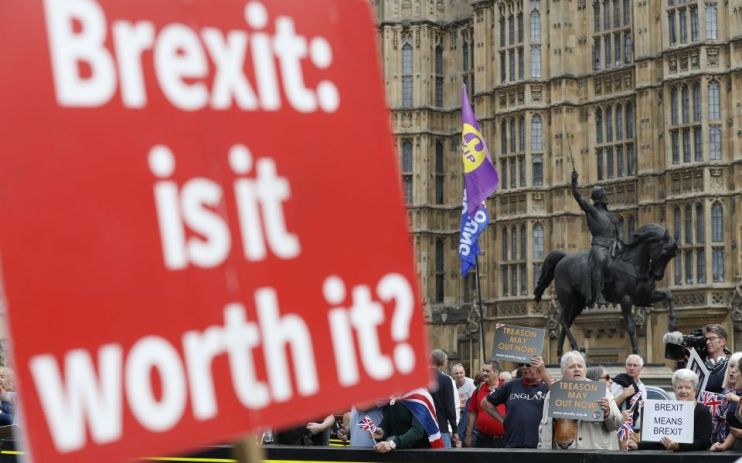DEBATE: Are the Operation Yellowhammer warnings about no-deal likely to be exaggerated?

Are the Operation Yellowhammer warnings about no-deal likely to be exaggerated?
Ruth Lea, economic adviser to the Arbuthnot Banking Group, says YES.
The Yellowhammer warnings have a weary familiarity to them. As with Project Fear Mark 1, prior to the 2016 referendum, any possible negativities have been ramped up out of all proportion.
In 2016, the Treasury told us that a Leave vote would throw the economy into recession, and unemployment would rise by 500,000. We are now being told that a no-deal Brexit will lead to chaos and mayhem.
Well, wrong then and wrong now.
This specific document was, apparently, prepared for Theresa May’s administration, notable for its alleged “deal” or “no Brexit” entrapment strategy. So it is less than surprising that it painted a gloomy picture.
Since then, UK no-deal preparations have been stepped up, while the EU has also developed its contingency plans. Moreover, trade will continue, under the WTO rules.
There will be bumps in the road – and we must prepare for them. But apart from assorted Remainers and anti-no-dealers, I suspect that few people were impressed by Yellowhammer’s warnings.
Read more: DEBATE: Are banks taking the threat of climate change seriously?
Tom Brake MP, the Liberal Democrat spokesperson on exiting the EU, says NO.
The media has been full of stories about Operation Yellowhammer, the leaked Cabinet Office document which reveals that if our “do or die”
Prime Minister chooses to die, in other words crash out of the EU on 31 October, the UK could face fuel, food and medicines shortages – and if that wasn’t bad enough, the risk of a hard border between Northern Ireland and the Republic as well.
The leak triggered a war of words between journalists and Michael Gove over Yellowhammer’s accuracy. If parliament were recalled, as over 100 MPs are demanding, Gove could be dragged kicking and screaming to answer for its validity. Until then, we’ll need to rely on the evidence made available from various sectors.
That evidence is conclusive. The UK is not ready for a no-deal Brexit.
Whether it is food or ferries, fuel or pharmaceuticals, there are major gaps in our preparations. These would become painfully obvious after a crash-out Brexit, which Boris Johnson and his unelected adviser Dominic Cummings would be entirely responsible for.